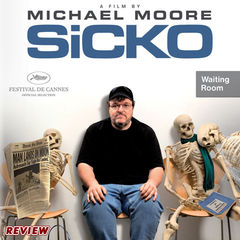Last night, I attended a screening of Born Into This, a documentary about writer Charles Bukowski. The fact that I was one of three hundred people crammed into the sold-out theater at 10:00 pm on a Sunday shows the scope of his grasp.
Reading Bukowski is like getting hit in the head with a beer bottle – sentence after sentence. Few writers say what they mean like he does. You won’t find flowery, prosaic sputtering or insignificant details, you’ll only read as many words as it takes to tell a story. The magic of Bukowski is that no matter how few words he used, his writing crackles with poetry.
The film is composed of interviews with Bukowski, family, and friends between 1972 and the early 1990’s. he most surprising thing is how gentle he seems. His calm, smooth voice and laid back manner are a direct contradiction to his wino-lifestyle, pockmarked face, and stories of barroom fights and barroom women.
Bukowski lived hard, but he also had a hard life. One of the most powerful scenes is where he visits the home of his childhood, a childhood he refers to as “A horror story with a capital H.” He stands in the bathroom, nervously drinking a Heinneken, and explains how that was where his father beat him with a leather strap five nights a week for six years.
Normally, you wouldn’t consider a movie where the protagonist dies at the end to be a feel-good film, but when Bukowksi died in 1994, he was happy. Born Into This serves as a fitting tribute to whom Bukowski’s publisher referred to as, “A Whitman of the street.”
Related Posts ¬
| May 27, 2011 | CAN’T STOP. WON’T STOP. |
| Nov 6, 2007 | SICKO DVD GIVEAWAY |
| Jun 28, 2004 | RECORD BREAKER |
Considering all the controversy of last weeks’ Fahrenheit 9/11 strips, I thought I would share the information that Michael Moore’s movie broke box office records for a documentary’s opening weekend.
Fahrenheit 9/11 took in $21.9 million this weekend making it the number one movie in the country.
Now for my two cents:
Cami and I saw the movie this weekend in Ames, which is about an hour away from Des Moines. It’s also home to Iowa State University, so you know there was a lot of liberal college students in attendance.
We would have seen the movie in town, but the only theater that was showing the movie was the same one we had all the trouble with when we went to see Lost In Translation. Sorry, but it’s one of many establishments I won’t grace with my business anymore. CompUSA, I’m looking your way, too!
Anyhow, from a pure movie-making perspective, I think Moore told a very engrossing tale about the Bush administration. Funny, shocking, sad… ultimately you left the theater with plenty of food for thought. This is never a bad thing.
A lot of the facts that Moore severed up I already knew. But he packages them in a way that serves the most impact. Watching the movie defiantly leaves and impression.
There were parts of the movie that were a little overwrought and you can tell where Moore’s ego gets in the way. Blind-siding Senators and asking them to sign up their kids for service in the armed forces is a little shady. So was his parading of a mother who’s son died in the conflict.
Don’t get me wrong. I am sorry for her loss and thank her family for their sacrifice, but it felt emotionally cloying and a little more than manipulated.
Is everything Moore says in the movie 100% truth? No. He’s defiantly pushing his own agenda. But if anything, it’s prompted me to ask more questions and do more of my own research – which is also a good thing.
I think if anyone is walking into this movie expecting the unfiltered truth to be spoon-fed to them, then they’re walking into the theater with the wrong idea. Because it’s no better than to accept what Moore says at face value any more than what the current administration tries to get you to believe.
Bottom line: Regardless of your politics, everyone should see this movie. It’s too important and too timely to ignore.
Related Posts ¬
| Dec 21, 2005 | I WANNA SEE WHAT HAPPENS |
| Nov 6, 2007 | SICKO DVD GIVEAWAY |
Give it up for the coincientally-named M.C. Man from The Adventures of Masked Cape Man for today’s guest strip. I know he was really nervous about doing a guest strip, but I think it turned out great! Be sure to check out his site and let him see some Theater Hopper love!
No, not that kind of love. The love that’s illegal in 15 states. The web-friendly love! No… The OTHER kind of web-friendly love…
Don’t forget that we have guest strips running EVERY DAY this week. See you here tomorrow!

When Michael Moore’s Sicko was in theaters earlier in the year, it had a hard time connecting with audiences and $24 million take at the box office was considered a “failure” in comparison $120 million take of Fahrenheit 9/11 only three years prior.
Maybe people weren’t interested in the controversy Sicko generated. Maybe they had grown tired of the conservative vs. liberal debate that nearly every pressing issue has devolved into. More likely than not, they probably felt so overwhelmed and powerless in the face of the medical systems, they didn’t have much hope that a documentary could unravel its riddle.
There is no question that Moore had his work cut out for him when making Sicko. But he approached the concept of the broken American health care system in a very democratic way. Soliciting for personal stories from visitors to his web site, Moore gathered over 25,000 e-mails detailing the frustration and hopelessness this small sample of American citizens faced when trying to acquire reasonable health care.
Now Moore was faced with the problem of telling 25,000 stories.
Some stories serve for a laugh. One man who sought to provide his daughter with an ear implant was denied coverage, but found his insurance provider willing to change their stance on the issue by merely bringing Moore’s name into the conversation. “Has your CEO ever been in a film before?” he asked. His daughter got the implants.
Another woman told the story of being charged by her insurance company for being taken to the hospital in an ambulance after a car accident because the ambulance ride was not pre-approved. “I don’t know when exactly I was supposed to have it pre-approved,” she says. “Was it after I regained conciousness in the car and before I was placed in the ambulance?”
Some stories serve to shock. Moore talks to individuals who worked within the health care industry who were hired to turn sick people away. An investigator that would go through ever record imaginable to find out if you failed to disclose a pre-existing condition. A call center worker giving quotes to sick people over the phone, but knows they’ll be denied due to medical history – bound from saying anything to prospective customers. A medical reviewer who reveals she was instructed to maintain a 10% denial rate and that doctors with the highest rate of denials would actually receive a bonus.
Time and time again, Moore serves to us examples of a health care industry run amok and the political powers that be that have allowed it. Neither Democrats or Republicans get off lightly in his expose. Hillary Clinton, for example, once the greatest proponent for universal health care in the early 90’s is now the second largest recipient of campaign donations from the health care industry.
But Moore isn’t simply finger pointing in this movie. There is plenty of blame to go around. From the insurers to the pharmaceutical companies, to the lawyers, lobbyists and the politicians. Everyone is taking their cut.

Moore wanders into dangerous territory when he starts to travel abroad. Comparing the American health care system to those of Canada, England and France, he’s been chastising for making them look like some kind of utopia.
If I could editorialize for a minute, this is where Moore’s critics get it all wrong. Assuredly, he is only showing a piece of the whole picture. But he’s doing it to incite a specific emotional response not unlike any other filmmaker or any other documentarian for that matter. It’s not journalism. It’s whistle blowing – and it’s two different things.
Granted, things start to step out of line when Moore takes three Ground Zero rescue workers to Guantanamo Bay, Cuba for medical attention. Captured enemy combatants – terrorists, he claims – get better health care than the men and women who risk their lives after 9/11.
But once he arrived in Cuba to seek medical treatment from the country’s free health care system, the footage speaks for itself.
The rescue workers were asked for the names and nothing more. A full battery of tests were performed on each of them. Thorough diagnoses and health plans to follow when the returned home were given to them. For one woman with respiratory problems, she was given inhalers for free that would have cost over $120 in the United States.
The point, Moore states, is that even in the supposedly “worst” countries like communist Cuba – if they can take care of the sick, an “enemy” no less, without thought or question to who will pay for it, then why isn’t that something American policy makers can adopt?
I think regardless of where your personal politics lie or even what you think of Moore as a filmmaker (or muckraker, whatever you prefer) most people can agree that the American health care system is not the best it can be. For your own education, Sicko is an easy an access point to understanding a complex issue that you’re likely to come across. Even if you don’t agree with it, maybe it’ll prompt you to do your own research. A few more voices asking questions never hurt.
“If we see a good idea,” says Moore. “We take it. If they build a better car, we drive it. If they make a better wine we drink it. So if they’ve found a better way to take care of their sick, to teach their kids, to take care of their babies… then what’s our problem? Why can’t we do that?”
The logic is hard to refute.
I hope everyone had a chance to listen to The Triple Feature talkcast last night. If not, it was a good show. We covered a lot ground talking about American Gangster, Bee Movie and Shia LaBeouf being arrested in Chicago. Good times.
Something else I touched on quickly was the release of Michael Moore’s Sicko out on DVD today. In addendum to the review posted above, I have one copy to give away, so I’m running a little contest.
Download last night’s episode of The Triple Feature from our profile page and listen for the first half of a clue. Combine it with the second half of the clue (that I’m going to give to you in a second) and e-mail the compelted clue to theaterhopper@hotmail.com with your name and address. Make sure the subject line of your e-mail is “SICKO” so I’ll know you’re entering the drawing. One winner will be chosen at random. If you don’t want to download the show from TalkShoe, we’re also available on iTunes. Sign up for our podcast and have the latest epsiode sent to your computer every week!
Anyway, without further delay, the second half of the code is “YOU.”
Send in the complete phrase for your chance to win!
GOOD LUCK!
Related Posts ¬
| Apr 7, 2008 | CLARIFICATION |
| Jun 11, 2007 | NEW TRIPLE FEATURE TONIGHT – WE WANT YOU TO PARTICIPATE! |
| Jan 28, 2011 | TANGLED ON 3D BLU-RAY, BLUR-RAY AND DVD MARCH 29 |
The other night I saw a documentary that, if left to my own devices, I probably would not have saught out. But thanks to a few friends in the medical community, I attended an advanced screening of The Business of Being Born – an eye opening look into how babies are delivered in the United States.
I didn’t expect to like the movie as much as I did. Birth plans? Doulas? Even as a parent – as a man, some of these concerns felt out of my grasp. But the film does a good job of identifying the needs of women in the larger context of the hospital system making the issues there-in less of a “women’s issue” or even an issue for expectant couples – but a human issue.
Like any good documentary, the film is rife with interesting facts and statistics. For example, in the 1900’s, 98% of children were born at home. But after the industrial revolution, medical colleges were spitting out more obstetricians than the country knew what to do with. By the 1920’s, hospitals were participating in active smear campaigns against midwives depicting haggard gypsy women as unclean vestiages from “the old country” and offered hospitals as a gleaming, white mecca for safe delivery. By the 1950’s only 1% of births in America were at home. A statistic that stands firm to this day.
Despite the fact that my own son was delivered with the help of a midwife (one whose practice was associated with a hospital, but operated independently), the stigma against midwives still floats around in my brain. Just mention the word and images of water births and waving wolfsbane over a woman’s head come to mind.
There is certainly a little bit of this “granola” way of thinking on display in the movie among the midwives that are interviewed. There is a lot of talk about an “authentic” birth experience among the mothers-to-be. These converstations take on a less endulgant neo-hippie tone when faced with the business protocol of most hospitals.
As characterized by the movie, hospitals are businesses that – not unlike hotels – are more interested in filling beds and turning them over and, typically, if a woman’s delivery does not fit within a certain window of time, doctors perform escalating levels of “interference” from synthetic hormones to major surgery in order to prompt the delivery of the child.
Probably most shocking are the films statistics regarding c-sections in the last 10 years – which have seen a dramatic increase. In some hospitals, the highest number of c-section deliveries spiked at 4:00 in the afternoon and 10:00 a night. A clear indication – they claim – that doctors and hospitals are not about seeing a woman through a natural process, but treating pregnancy clinically, as if it were a disease. Practices that put both mother and child at risk and have lead the United States to the second worst infant mortality rate in the developed world.
The film doesn’t spend it’s entire time lobbing shocking examples of the medical system’s failures at you. It balances things out by following several women down the path of their deliveries, which brings the film a real sense of humanity. Typically disturbed by the graphic footage of deliveries I’ve seen on television in the steril surgical environment of hospitals, births became much less shocking and violent than pleasantly surprising and relaxed in the context of home births.
At the same time, the film does not dismiss what doctors do completely. The film’s director, Abby Epstein, became pregnant during production and had planned on an at-home birth before her midwife determined that the baby was breach and she need to be rushed to a hospital. So even for someone advocating a certain line of thinking, the value of professional, medical care is a still an important factor.
More than anything else, the film inspires couples to ask more questions about their options rather than accepting the authority of medical professionals with blind faith. There is a time and place for hospitals. But, by in large, going to a hospital to deliver a baby is overkill. A woman’s body knows what to do.
The Business of Being Born is currently in limited release, but keep your eyes open for it later in the year.
When my good buddy Joe Dunn jumped on our mutual friend Mitch Clem’s neckbeard bandwagon with his latest comic, I really wanted to do my own neckbeard comic as well. Alas, I couldn’t make it fit within context and had to go another direction.
I was stuck for a while until I remember Run Fatboy Run was in theaters this weekend. The rest… came quite naturally.
Did you have an overweight friend in grade school? Were *you* the overweight friend? Why is it that the only weapon at their disposal is the threat of sitting on someone? Wouldn’t they have to catch you first? Oh, well.
In case you’re not familiar with the plot of Run Fatboy Run, Simon Pegg from Shaun of the Dead and Hot Fuzz plays a guy who left his fiance (Thandie Newton – once again cast as “the girl”) at the alter tries to win her back by training for and finishing a marathon. It sounds kind of like a premise for a sitcom to me. Which perhaps makes it appropriate that Friends alumnus David Schwimmer is directing. What? I know. Sounds weird to me, too.
I have hope for the screenplay, however, as it was written by both Pegg and Michael Ian Black, who you might remember from MTV’s The State or VH1’s infinite I Love The (Insert Decade Here) series.
I’m kind of thinking I need to get out of the house this weekend and see a movie. It’s been a stressful week for me. I started a new job and I’ve been sick as a dog with some kind of super-cold. I’ve been equal parts stressed out and exhausted. I need a little reward.
I don’t know if Run Fatboy Run is the kind of movie Cami would be interested in seeing. We haven’t discussed it since this is only something I’ve started to consider since I sat down to write this. But even if she takes a pass, I think I’m going to try and slip out of the house once Henry is asleep and try to go see it.
While I try to sort that out, I have something else I wanted to share with you guys.
Remember Boxcar Comics, the web comic collective I belong to? I haven’t mentioned it very often because, well, we didn’t do very much.
But now that’s changing! We have a freshly redesigned web site and we’ve committed ourselves to producing new content for our collective readers. The first offering of which is this:
That’s right! A jam comic! Pretty cool, huh?
Click on the image above to be transported to Boxcar’s first jam comic offering. I was really proud of how the whole thing turned out. Everyone really stepped up to the plate with their art and their jokes. In fact, I was completely intimidated because I had the last spot and I was seeing everyone’s work as we were progressing. All I kept thinking to myself was “There’s no way I’m going to be able to match this stuff.”
I think, in the end, I landed on my feet. But I’ll let you be the judge of that. Check it out!
Until then, have a great weekend everybody! I’ll see you here on Monday!

Having heard about Exit Through The Gift Shop for the better part of a year, I finally had a chance to sit down and watch it last night with Cami when she asked “What documentaries do we have in our Netflix queue?”
For the record, she balked on watching Helvetica. So watching famed British street artist Banksy’s documentary was kind of a compromise.
Despite effusive praise of the movie from both friends and reviewers a like, I didn’t have a concept of what the film was actually about. I was pleasantly surprised.
It’s not the definitive documentary of the street art movement, if that’s what you’re looking for. It’s not filled with a bunch of talking heads discussing the sociological imprint of this bastardized version of pop art. The history of street art informs the narrative, but Exit Through The Gift Shop is not explicitly about that subject.
Instead, Banksy takes footage assembled by a French shop owner (by way of Los Angeles) named Theirry Guetta and slowly turns the camera on him.
Guetta is presented as a passionate (if someone guileless) chronicler of the street art movement. He obsessively videotapes everything and after visiting with his cousin – the renown street artist known as “Invader” – does he fall head first into their world.
Despite the threat of prosecution for what is (in the law’s eyes) graffiti and destruction of prosecution, several street artists agree to be captured by Theirry’s lens under the assumption that he will cut together a documentary about their medium. Their art is temporary and often quickly removed. It deserved to be documented.
As the movement grows, Banksy is introduced as Guetta’s white whale. Highly prolific, satirical, political and elusive, Guetta is convinced his “documentary” cannot be completed until he captures Banksy on film. He eventually befriends the artist and gains his trust. But things turn south after Banksy prompts Guetta to make the film he’s long alluded to.
With no film making skills of his own, Guetta produces an unwatchable mess called Life Remote Control. A spastic, channel-surfing montage of footage with no coherent narrative.
It is at this point that Banksy convinces Guetta to leave the raw footage with him and prompts him to become a street artist in his own right.
Just as Guetta was once consumed with chronicling the lives and work of street artists, he takes to the streets of Los Angeles pasting buildings with his work under the pseudonym “Mr. Brainwash.”
What follows is an astonishing turn of events as Guetta creates a studio, hires hundreds of artists to construct pieces of his vision and launches a gallery show and becomes an art celebrity in record time.
The film pulls no punches by portraying Guetta’s work as manufactured and derivative. Nor does it spare any scorn for art scenesters who go along with the fraud so readily.
What ultimately emerges is an incisive critique of the art world and how something as intentionally guerrilla and ideologically subversive as street art can be co-opted, homogenized and turned into a product by enterprising entrepreneurs like Thierry Guetta.
“There’s no one like Thierry,” admits Banksy. “Even though his art looks like everyone else’s.”
Fans of street art movement might not get all of their questions answered by watching Exit Through The Gift Shop. But they’ll get an unflinching look at the role authenticity plays in creating meaning from art.
Related Posts ¬
| Mar 27, 2011 | BAMBI DIAMOND EDITION BLU-RAY REVIEW |
| Sep 20, 2005 | JUST LIKE HEAVEN |
After generating some buzz a few months ago, a trailer for Conan O’Brien Can’t Stop finally hit the web this week.
The film is a documentary lensed by director Rodman Flender capturing O’Brien’s 32 city music-and-comedy “Legally Prohibited From Being Funny on Television Tour” from last year. Flender is a friend of O’Brien’s, but from what I’ve heard, the documentary is not a whitewash of the events that transpired after Conan left The Tonight Show. It’s supposedly a very real look behind the scenes at the frustration and depression that motivated Conan to throw off the shackles of convention and do his own thing, lest he be remembered as a late night footnote.
One of the reasons Conan O’Brien has so many fans is because his experience is relatable to a lot of people who have had something taken away from them. It stings like a mother and a small part of you wants revenge.
While the trailer creates the false narrative that Conan’s tour has the potential to fail (C’mon, really? It sold out in record time.) It looks like it does a good job of capturing Conan’s anxiety as a performer. Can he pull it off? For his own sanity, he has to. But is this need to perform as altruistic as it appears on the surface or is Conan forcing himself back into the limelight to fill a void within himself?
I’m personally really looking forward to finding out. Conan O’Brien Can’t Stop hits theaters on June 24. You can visit the official web site here.
What’s your take? Leave your comments below!

Related Posts ¬
| Feb 10, 2011 | X-MEN FIRST CLASS FACEBOOK TRAILER |
| May 21, 2012 | THE PROMISE OF DALTON – SKYFALL TEASER TRAILER |
| Oct 13, 2011 | THE MUPPETS – TRAILER |
| Feb 6, 2012 | TRAILER – THE AVENGERS, EXTENDED |
As someone who fell madly, deeply in love with movie Once and it’s Oscar-winning soundtrack, I was enthralled to learn that the follow-up documentary The Swell Season would be hitting theaters soon.
If you’re a fan of the movie Once and the music of Glen Hansard and Marketa Irglova, you owe it to yourself to watch this now.
As most people know, Hansard and Irglova carried over the fictional romance captured in Once into the real world. This new documentary captures the two year period after the release of the film and the success and strain it brought upon the couple – a very interesting coda to a unique love story.
For a romantic like myself, the promise of this movie hits me squarely between the eyes. I’m looking forward to the opportunity to see it soon.
What about you? Any thoughts about this new film, about Once or about Glen Hansard and Marketa Irglova? Leave your comments below!
Related Posts ¬
| Dec 16, 2011 | TRAILER – GHOST RIDER: SPIRIT OF VENGEANCE |
| Jul 27, 2011 | TRAILER: NEW YEAR’S EVE |
| Dec 21, 2011 | TRAILER – THE HOBBIT |










